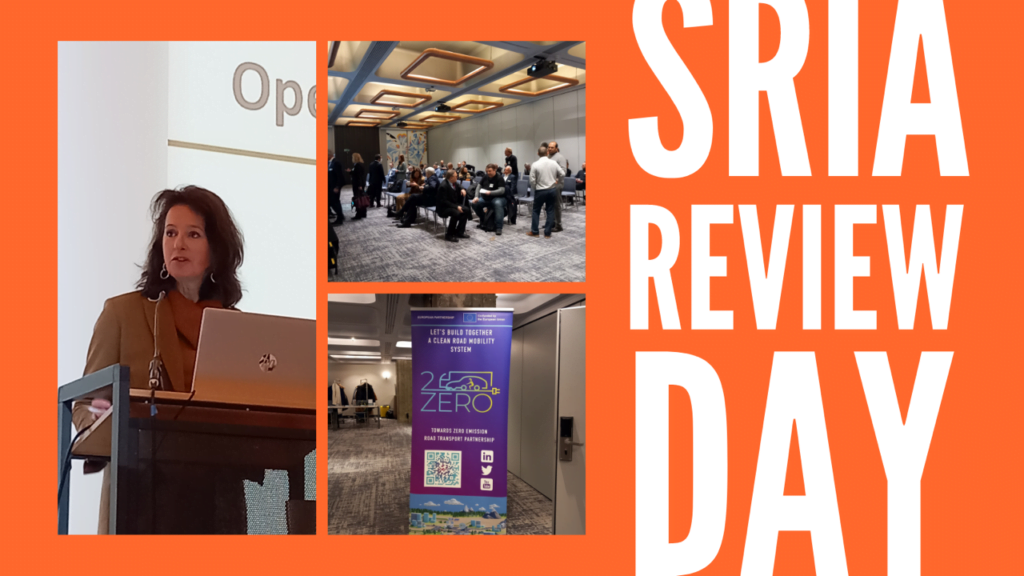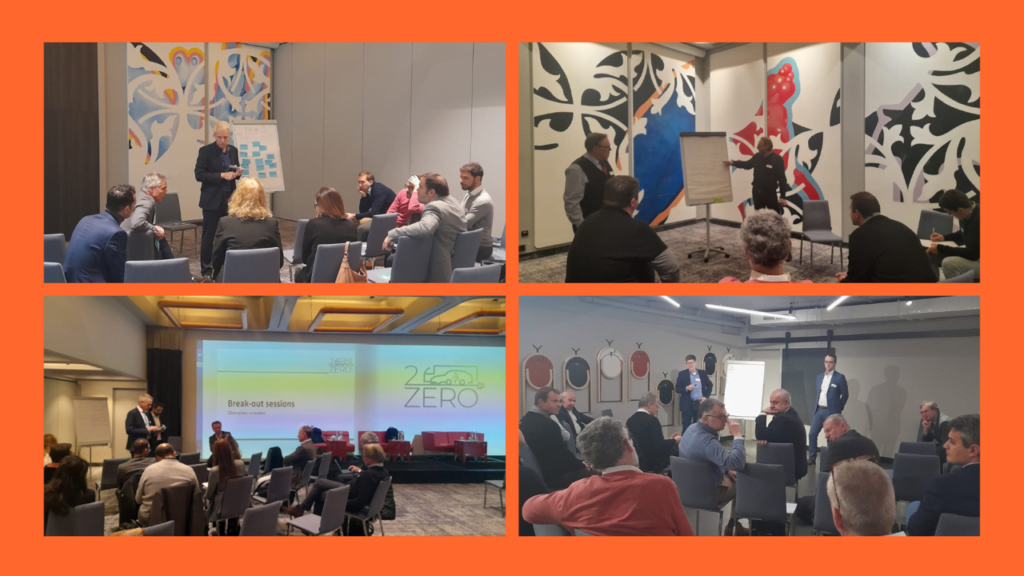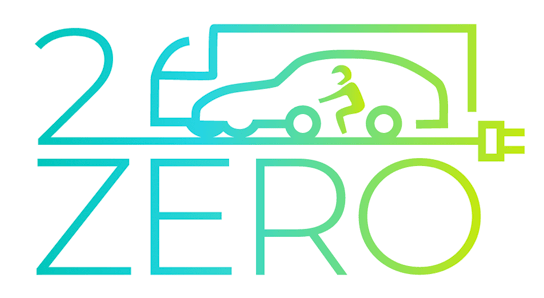News
2Zero Strategic Research and Innovation Agenda: first step towards an updated version


Road transport experts gathered in Brussels last week around our pillars co-leaders to discuss the current description of the 4 pillars of the SRIA and share perspectives on what should be the research and innovation focus in the second phase of the partnership.
During 2 hours, experts from industry, research, and user representatives discussed in short groups the remaining bottlenecks in the areas covered by each pillar.
The main highlights of these discussions are as follows:
- Under Pillar 1 “Vehicle technologies and vehicle propulsion solutions for BEV and FCEV”, the need to develop even more user-centric solutions was emphasised in several of the breakout sessions; this could be implemented (among others) by further integration and better use of data.
The sustainability of materials used in vehicles, of batteries, and the overall energy consumption (WtW) was also a strong highlight of the discussions. - The Pillar 2 “Integration of the battery electric vehicle into the energy system and the related charging infrastructure” stressed the need for research in the following areas:
– More distributed infrastructure (smart charging, low charging …) for better integration of vehicles and ensure interoperability of the various solutions being developed.
– Solutions for charging infrastructure for both light and heavy-duty vehicles, including the reliability of the power grid and flexibility in charging power.
– A better harmonisation and integration of payment systems into the infrastructure. - The discussions in Pillar 3 “Innovative concepts, solutions and services for the zero tailpipe emission mobility of people and goods” started with a focus on logistics aspects, use cases relevant to the zero tailpipe application, pilots and scale-up and continued with reflections on aspects related to passenger mobility and well as urban solutions. Collaborations with other partnerships (including CCAM, in line with the first collaborations launched under the 2023 work programme with a tripartite with the cities’ mission) have also been mentioned.
Other topics of discussion have been touched upon, including skills, capacity building with many stakeholders, customer needs and their implications on logistics (speed of delivery, intelligent pallets to link to better vehicles/smart charging/road charging/transport hops/intelligent hubs producing electricity on-site/maintenance/driver’s skills…). - The Pillar 4 “LCA and circular economy approaches for sustainable and innovative road mobility solutions” concluded on the need to sharpen some of the items in a description that is already exhaustive and still very much up to date. More focus should be put on the end-of-life, and all the 2Zero pillars need to be involved in the process of identifying potential trade-offs: affordability of solutions and international competitiveness could be important aspects.
Thanks to this promising first step, EGVIAfor2Zero is on track to draft the update. Stay tuned, the draft version is expected to be published in June 2023!

